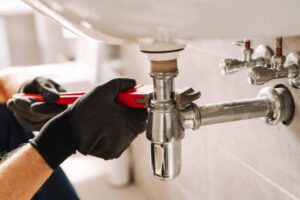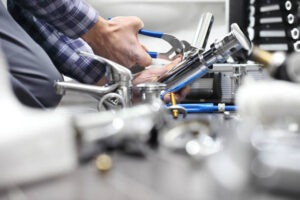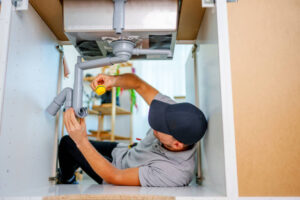Investigating a gas leak in your water heater: first, your safety
Gas water heaters are dependable and efficient way for heating water in your residence. Still, one needs to be vigilant to ensure these appliances are working as they should. One of the most dangerous situations is a gas water heater gas leak. This website will walk you through the carefully recognizing a gas leak in your water heater procedure and, should required action be taken immediately away. Your safety is first among tremendous concerns!

Be Aware of the “Rotten Egg” Smell: Gas leaks will be most likely found with your nose. Gas companies include a special odorant—often described as the smell of rotten eggs—to enable natural gas be more readily discovered leaks. This strong smell you find near your gas water heater would suggest a gas leak.
Apart from the different smell, you could be able to hear a gas leak. You should not ignore whistling or hersing you find near your water heater. These sounds should be taken immediate attention since they could point to gas leakage.
Look at the flame on your gas water heater for some time to notice anomalies. A good flame should be blue and clearly defined. If you detect a different color—say yellow or orange—or if the flame seems flashing and erratic—a gas leak may be suggested. Under such circumstances, you really have to react fast.
Finding a gas leak much more effectively will come from making a soapy solution and applying it to the connections and fittings near the water heater. Should bubbles start to form, they indicate a gas leak. Remember that you must turn off the gas feed of the water heater before using the bubble solution procedure.
Install a house’s gas leak detector. Consider investing such money. One of these detectors should find a gas leak by continuously looking for them and generating an audible alert, so providing still another level of security. Gas leak detectors may be especially useful if you wish more security for your peace of mind or if you worry about leaks in hard-to-reach areas.
Should your water heater leak gas, you should apply these crucial rules:
Give your family’s and your own safety first thought should you suspect a gas leak. Right now phone the gas company’s emergency line and vacate the property. Since a spark could ignite the gas, avoid using any electrical switches or try to stop the leak personally.

Gas leaks need for the understanding of trained professionals. Call a licensed plumber or a gas specialist to assess the situation, fix the leak, and ensure your water heater is in good running condition. Never compromise your safety, though.
With regard to gas safety, it transcends temporary fixes or band-aid patches. It’s about getting ahead to protect your family and yourself. By closely reading, listening, and sniffing for any potential gas leaks, you are actively negotiating the intricacy of gas water heater maintenance.
Remember too that always better than cure is prevention! Plan regular maintenance for your gas water heater to identify any potential issues before they become more critical. Expert specialists could inspect components thoroughly covering component evaluations, venting assessments, and leak identification. Gas appliance maintenance done pro-actively ensures the long-term safety and efficiency of your water heater.
Right in the middle of our homes, water heaters constantly provide the warmth required for our daily activities. Still, one should be wary of probable hazards such gas leaks inside these machinery. Maintaining awareness and searching beyond the ordinary will enable us to reveal the mysteries of gas leaks and ensure the protection of our homes and loved ones.
Remember that the first line of defense against gas safety issues in your house is awareness, behavior when needed, and giving your safety first importance. See professionals to assist you along the process; let no doubt exist about the safety of your gas water heater.
Homeowners should not have a small attitude regarding the main issue of gas water heater leakage. Ignorance about it or treatment could drastically jeopardize not only your belongings but also your health. Gas leaks have caused explosions, fires, even carbon monoxide poisoning. This page will go over the probable hazards of gas water heater leaks coupled with some ideas for quick solutions.
One of the most significant risks related with gas water heater gas leaks is the likelihood of explosions and flames. By accumulating gas in small locations, including utility closets or basements, gas leaks can quickly cause a catastrophic event. These explosions jeopardize not only your property but also your life and those of your loved ones. One has to be aggressive in identifying and repairing gas leaks if we are to prevent such events.
Another great risk connected to gas leaks is carbon monoxide poisoning. Gas heaters depend on the burning of natural gas to produce hot water. Leaks in the system or efficient combustion could generate the colorless, odorless gas known as carbon monoxide, which is poisonous for humans. High carbon monoxide levels can cause nausea, dizziness, and maybe loss of consciousness. Extended carbon monoxide exposure can cause one to die. Should you so suspect a gas leak in your water heater, you have to be aware and act immediately.

How therefore should one manage these likely risks? First of all, being proactive in ensuring your gas water heater is periodically maintained and inspected is wise.
Still another degree of protection comes from keeping a carbon monoxide detector near your gas water heater. These detectors should notify you should carbon monoxide levels grow dangerously high, therefore enhancing the safety of your residence. Getting a dependable detector will provide piece of mind should a gas leak arise and early warning system.
Remember that the hazards related to gas water heater leaks transcend only addressing the immediate issue. It also relates to aggressively addressing the protection of your house and loved ones from potential hazards.

